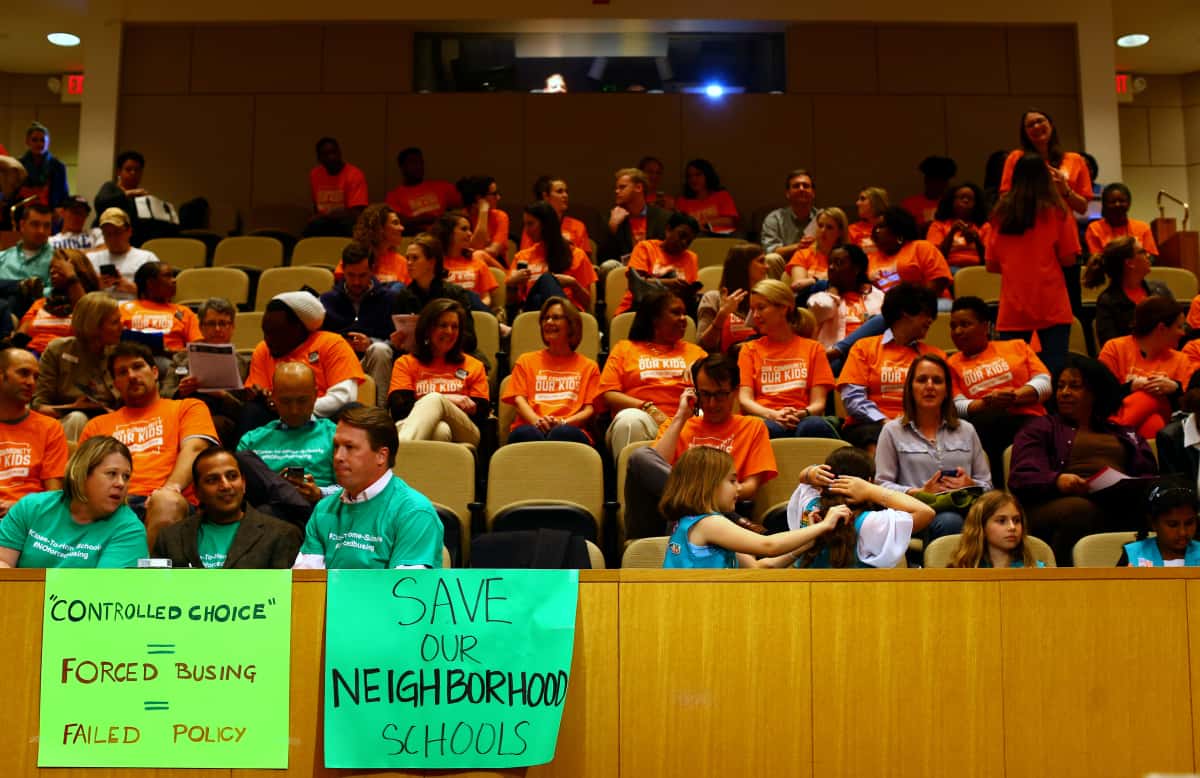Education is inherent to the social mobility that is the cornerstone of our democracy and nation. However, for too many students in our district, their opportunities and outcomes are directly tied to their zip code. In my 10 years as an educator, I have held a variety of roles in high-poverty schools, including teaching for six years in Baltimore and Charlotte, two cities recently determined to have some of the lowest rates of economic mobility in the nation. Here in Charlotte, we find ourselves once again with separate and unequal schools and in a renewed battle to ensure that all students, regardless of their address, have the opportunity to attend a high-performing school.
While the initial goals seemed to indicate the school board’s commitment to reducing high concentrations of poverty, the guiding principles as currently drafted make it far too easy to largely maintain the status quo, denying the almost 40,000 CMS students currently attending D/F schools the opportunity to attain an excellent education.
We have heard from the board members on several occasions that it is only they, the board, that is ultimately responsible for assigning all of our kids to schools. I urge the board to explicitly include these three strategies in the final guiding principles document and plan for addressing segregation and inequity in our schools:
First, 10 percent “set-asides” at A/B schools for students coming from D/F schools.
Three of the goals call for us to “provide choice and promote equitable access,” provide “options” for students assigned to low performing schools, and to “preserve and expand” successful schools and programs. A “set-aside” policy in the guiding principles would do just that. Reserving 10 percent of seats at A/B schools and providing the opportunity for over 9,500 students currently attending D/F schools to request by choice reassignment to these higher performing schools.
Second, revise school board policy JFAC on reassignments and transfers to reflect current, actual capacity utilization, and allow for an exception for the set-aside reassignments.
Policy JFAC is an example of institutional racism that is alive and well here in our district, protecting some of the disproportionately white schools in CMS from student reassignment requests.
Finally, establish partner elementary schools.
In several areas of Charlotte, a high-poverty school is less than four miles from a more affluent school. We see this with Sterling and Smithfield, Selwyn/Pinewood/Montclaire, and Greenway Park and Matthews. By partnering these schools together, with one campus serving K-2 and the other campus serving 3-5, we can provide a more diverse and inclusive educational environment that better serves all students, without significantly elongating any child’s bus ride.
As we move forward in our dialogue and work around student assignment, we need to start thinking about our community as ONECharlotte and OneMECK, and not just a collection of individual neighborhoods.



